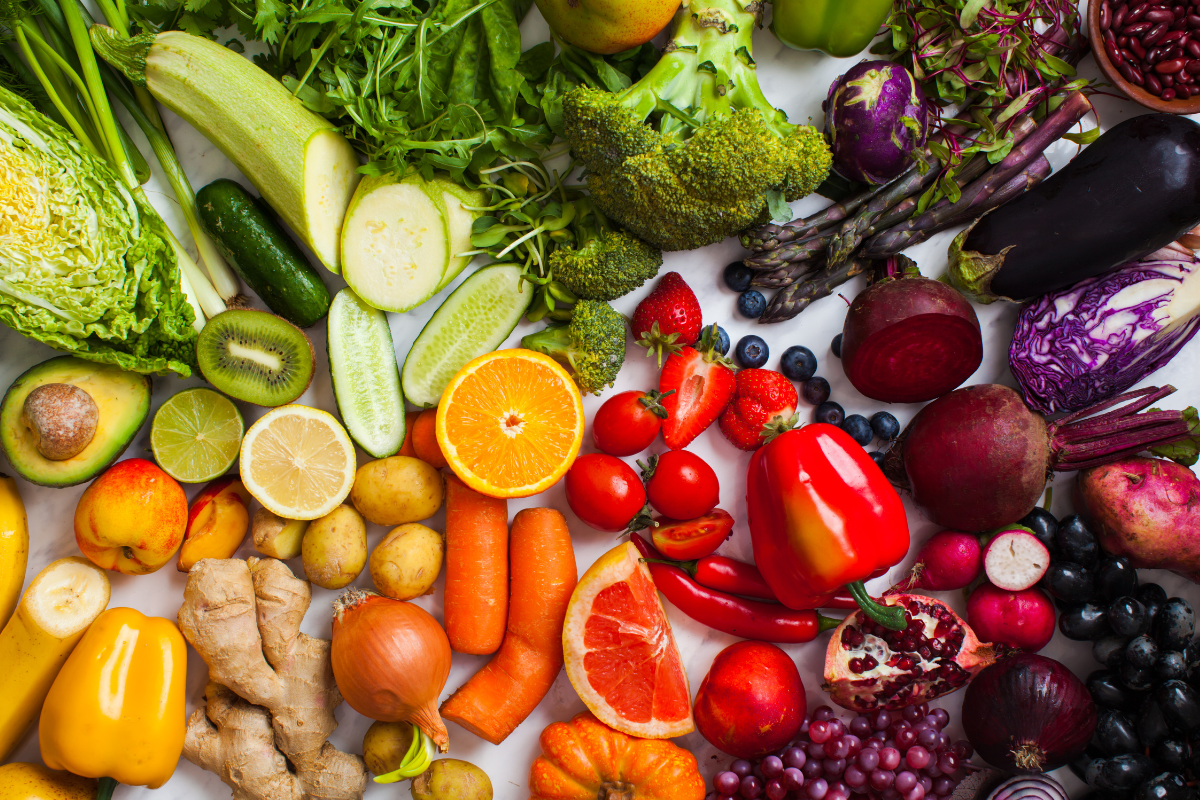Nutrition in Pregnancy: Eat Right

Your nutritional and health status before
and during pregnancy plays a crucial role in the optimal growth and development
of your baby. Proper nutrition also reduces the risk of complications for you
during pregnancy and childbirth.
What Should a Healthy Diet for a Pregnant Woman Look Like?
A balanced diet during pregnancy should
include foods from all the basic food groups. This means that your meals should
be rich in macronutrients, namely carbohydrates, proteins, fat and oil, and
micronutrients i.e., vitamins and minerals.
Carbohydrates: The main source of energy. Examples include starches (tubers, wheat,
maize) and sugars (ripe fruits like mango, banana, orange, pawpaw, and guava).
Proteins: Essential building nutrients. Sources include animal products (meat,
fish, eggs, cheese) and plant products (beans, peas, nuts, guinea corn).
Fats and Oils: Concentrated energy sources. Examples include animal fats from beef
and sheep known as suet, and fats from pork, also called lard. This can also be
obtained from fish oil and plant oils (olive, sunflower, peanut, and soybean
oils).

Folic Acid: Also known as folate, folic acid is very
vital in the general development of your baby. It’s one of the key supplements
given to you by your health provider during antenatal care-ANC visits. Folic
acid is most beneficial during the first 28 days after conception when most
neural tube (brain and spine) defects occur.
Neural tube defects can lead to paralysis,
incontinence, and sometimes intellectual disability. Thus, folic acid prevents
these defects from happening in your developing baby. 600 micrograms are the required
daily dose. Foods with a rich supply of folate include eggs, avocados, spinach,
liver, cabbage, kidney beans, oranges, okra, seeds and nuts. Folic acid intake
should begin before conception and continue throughout pregnancy.
Calcium: The recommended daily dose is 1000
milligrams. Calcium strengthens the bones and teeth of you and your baby. Calcium
can be obtained from sardines, dark green leafy vegetables, milk and yoghurt.
Iron: 30 milligrams is required daily. Mum needs twice as much blood in her body when
pregnant. Iron helps increase the blood volume in the mother and supplies the
baby with oxygen. It is also essential for brain development. You can get iron from fish, cereals with added
iron, shrimp and oysters, beef, turkey, and chicken.
Vitamin D: 600 international units are required
daily. It is important for strong bones and teeth. Vitamin D can be gotten from
sunlight, oily fish such as mackerel, sardines and salmon, egg yolks, liver,
mushrooms, and fortified milk.
Vitamin B12: Vitamin B12 is essential for your
baby's developing brain and spinal cord. It supports your baby’s system to make
healthy red blood cells and DNA. Sources of Vitamin B12 include fish, meat,
eggs, fortified milk, yoghurt, and fortified plant foods.
Others include Vitamin A, Vitamin C, Vitamin B6,
Choline, Iodine, DHA, and Omega 3. For the right amount of vitamins and
minerals during pregnancy, it is important to take a daily pregnancy supplement
as recommended by your healthcare provider. This, however, should not replace
your consumption of a healthy and balanced diet.

Fluids: Fluid intake is also essential. You should drink 8-10 glasses of water
daily (1.9 to 2.8 litres of water), supplemented by fluids from juices and
soups.
Consequences of Malnutrition
Malnutrition also known as poor nutrition happens when there is an imbalance between the nutrients your body requires to function properly and the nutrients it gets. So, poor nutrition can mean that you are lacking some calories, macro or micronutrients (undernutrition). It can also mean that you have too many calories or nutrients than your body needs (overnutrition).
Being underweight during pregnancy is linked
to low-birth-weight infants (birth weight <2500g) and preterm delivery, and
being overweight increases the risk of complications in you and your child,
including gestational diabetes, preeclampsia, miscarriage, neural tube defects,
foetal
macrosomia, stillbirth, and caesarean delivery.
To maintain a healthy pregnancy, an
additional 300 calories are needed each day. These calories should come from a
balanced diet of proteins, fruits, vegetables, and whole grains. Avoid
undercooked seafood, eggs and meat, raw milk, and all forms of alcohol. Sweets
and fats should be limited.
Conclusion
Going for routine antenatal nutritional counselling is very essential for all pregnant mothers. Ensure that you are eating right for your health, and the safety and proper development of your baby. Religiously take your recommended daily supplement in the prescribed dose, not more. Stay informed. Report every nutritional or pregnancy concern you may have to your health provider.
We wish you a safe pregnancy and delivery.
Other articles
Copyright © 2024 Gynix Afrika. All rights reserved.

